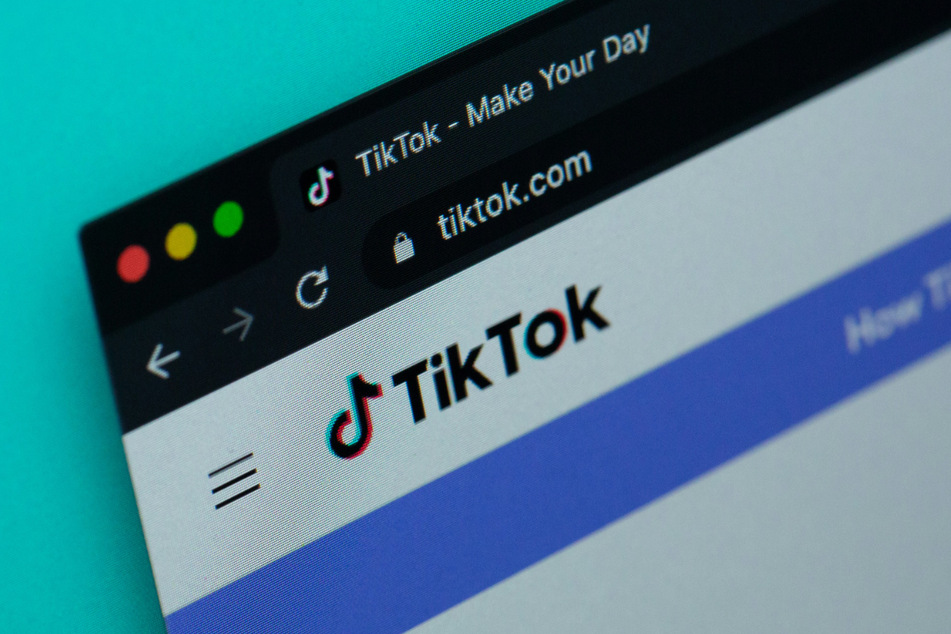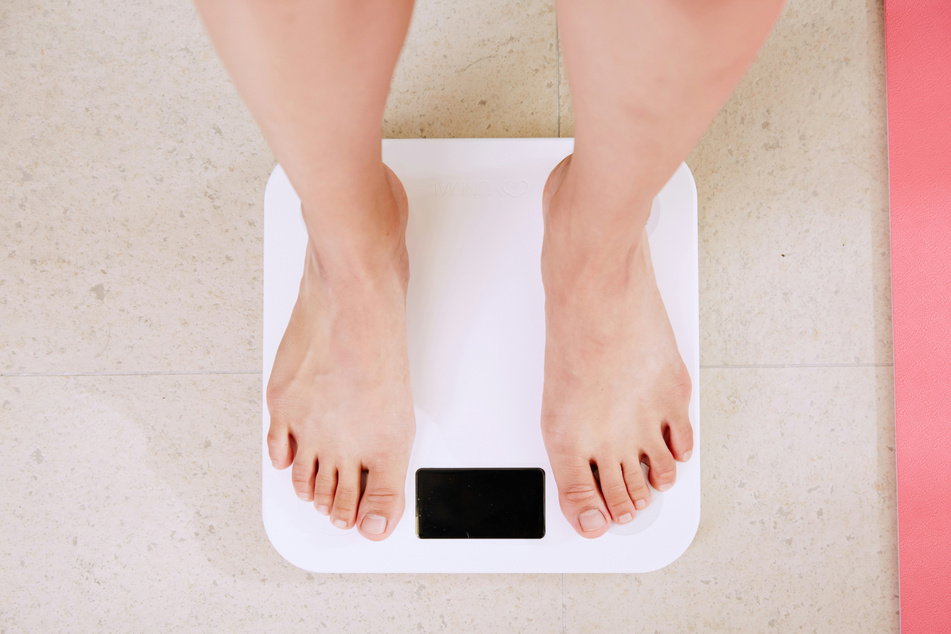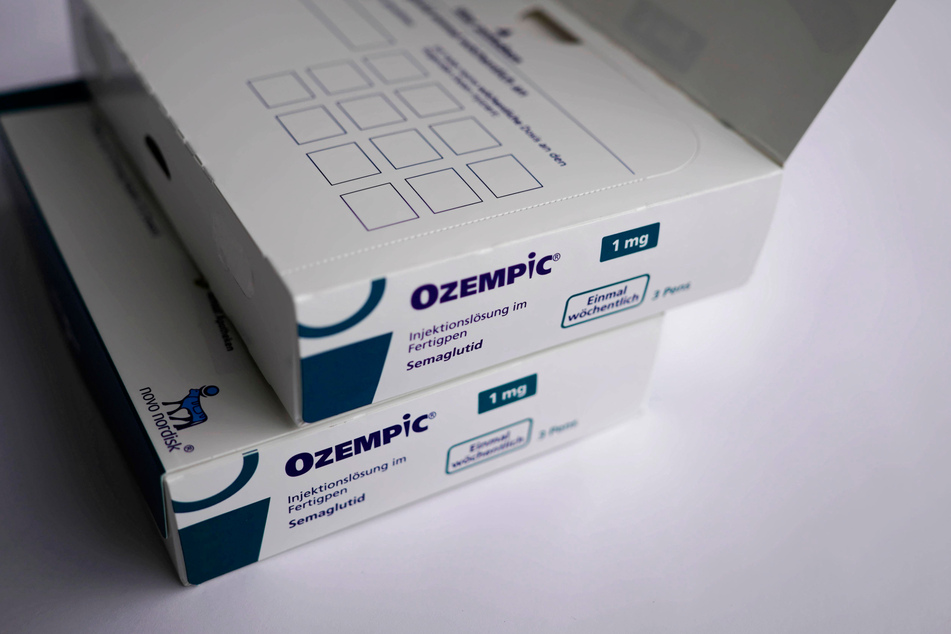TikTok cracks down on content that promotes disordered eating
Los Angeles, California - Weight-loss videos are a large part of content on TikTok. Now, the company is expanding its policy on videos that promote dangerous attitudes to eating. Can it rescue the body positivity movement?

Saying it does not want to promote negative body comparisons, TikTok is cracking down on posts about disordered eating, dangerous weight-loss habits, and potentially harmful weight-management products.
The wildly popular social media app updated its community guidelines last week, introducing a slate of new rules that it hopes will make the platform a safer place for its roughly 1 billion users worldwide.
The initiative comes at a time when TikTok, which is owned by Beijing technology firm ByteDance, is facing increased scrutiny over its operations and content as it fights a potential ban in the US.
Weight-loss videos comprise a huge category on TikTok, with influencers extensively detailing and demonstrating how they slimmed down. Such videos have proliferated in the last few years with the rise of injectable prescription drugs such as Ozempic, Wegovy, and Mounjaro, which many people are using to shed weight quickly.
Critics say the skyrocketing demand for the drugs has exposed the cracks in the body-positivity movement, showing that there is still immense pressure to look thin at whatever cost. They say TikTok and Instagram, anti-aging filters, selfie culture, and relentless celebrity and influencer self-promotion have all contributed to the problem.
TikTok already had policies around body image and disordered eating, but the updated guidelines explicitly break down such content into four categories: allowed, not allowed, restricted to users 18 and older, and ineligible for the "For You Feed," TikTok's personalized recommendation algorithm. They go into effect on May 17.
The new guidelines are intended to "improve understanding and bring greater transparency about our rules and how we enforce them," Adam Presser, TikTok's head of operations as well as the company's trust and safety unit, said in a statement.
"Body checking" trends and other unhealthy weight-loss content will be restricted

In the past, TikTok creators said they would sometimes see posts restricted or removed without understanding why they were flagged.
TikTok now clearly states that it bans videos "showing, describing, promoting, or offering or requesting coaching for disordered eating or dangerous weight-loss behaviors."
The company defines those behaviors as extreme low-calorie diets, binging and intentional vomiting, misusing medication or supplements for weight loss, and exercising through serious injuries or illness.
TikTok specifically called out content that shows or promotes unhealthy body measurements and "body checking" trends, such as comparing the size of body parts to household objects, as not allowed. Facilitating the trade or marketing of weight-loss or muscle-gain products is also on its way out.
Content that will be restricted to users 18 and older – and which will also be ineligible for the For You Feed – includes showing or promoting "potentially harmful weight-management behaviors" such as restrictive low-calorie diets; using medication or supplements for weight loss or muscle gain; and exercises designed for rapid and significant weight loss, such as "cardio routines that promise to help you lose a waist size in a week," the company said.
TikTok also said it would restrict before-and-after transformation photos promoting weight-loss and muscle-gain products, as well as videos that promote body types as "ideal or perfect" when associated with potentially harmful weight-management behaviors.
"We want TikTok to be a place that encourages self-esteem," the company said.
TikTok will allow content about "medically necessary" interventions

Creators who have documented their weight-loss journeys using the new class of trendy medications said they were disappointed by the crackdown. TikTok, they said, has become an important resource and close-knit community for people who have struggled for years to shed pounds and get healthy.
A spokesperson for TikTok said content about medically necessary health interventions under the guidance of a medical or health professional is allowed, including discussions about glucagon-like peptide 1 medications, which includes the diabetes drug Ozempic.
The spokesperson added that content about using GLP-1 medications for weight loss could still be discovered in other ways, such as through search tools or by following an account, even if it is ineligible for the For You Feed.
Showing or describing competitive eating contests; fitness routines, sports and nutrition that are not primarily focused on extreme weight loss, marathon training or body-building competitions; and religious diet behavior and fasting will still be allowed.
TikTok users will be permitted to condemn disordered eating, dangerous weight-loss behaviors or potentially harmful weight management "as long as it does not show or describe a diet or behavior," the company said.
TikTok's latest community guidelines also include new and updated definitions on the company's policies around hate speech and health misinformation.
In announcing the updated rules, TikTok said it would introduce a "warning strike" when a creator violates the platform's community guidelines for the first time.
"The warning strike does not count toward an account's strike tally, but any future violations will," Presser said. "We notify creators about which rule they've broken and how they can appeal if they believe a mistake has been made. Zero-tolerance policies (for example, incitement to violence) aren't eligible for these reminders; accounts will immediately be banned."
Cover photo: Unsplash/@solenfeyissa